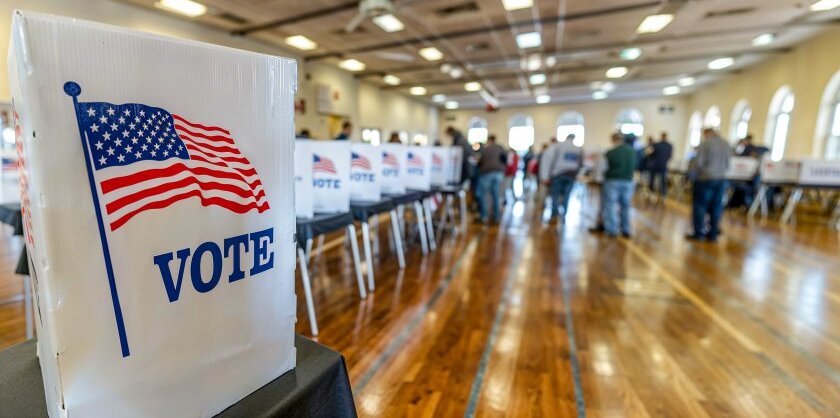What’s happened in Wyoming illustrates how closed primary elections shut too many voters out of the electoral process, intensify political polarization and raise important questions about funding these elections.
The legislation clarifies that statewide prosecutors have the authority to bring voting and voter registration-related charges. Twenty people have been arrested for casting an ineligible vote.
Two state representatives have introduced a bill that would allow 16- and 17-year-olds to register as voters starting next year. A similar bill was introduced last year, but ultimately died on the session’s last day.
When he addresses the nation, the president will talk about top-down solutions from Washington. But the real progress on the problems we face is coming from 50 state capitols.
Lawmakers want to impose new limits on early and mail-in voting to ensure that all ballots are received by the county election office on Election Day to avoid delaying results, which, they claim, sows doubt in the process.
Online chatter and ongoing harassment suggest that security concerns will persist, if not increase, ahead of the next election cycle. Resources are being offered to help election officials cope with this new reality.
The upcoming spring primaries will be a competition between longtime Democratic figures with deep government experience and a new wave of political priorities for Allegheny County executive, County Council and district attorney.
Voters in Black and Latino communities face longer lines at polling places, limited access to mail-in balloting and poor communication of redistricting changes. Spanish speakers make up about 12 percent of the state’s population.
A new poll found that voter confidence across the state has increased and about 73 percent of registered voters said they were very or somewhat confident that November’s general election was fair and accurate.
The California county has terminated its use of Dominion Voting Systems over widely debunked claims of mass voter fraud. The state only has three voting systems it allows its counties to use and it is unclear which one Shasta will select.
Joe Lombardo wants to do away with the state’s popular vote-by-mail system and also proposed using a photo ID as a prerequisite for voting. But the Secretary of State assured that the recent elections were secure and successful.
Connecticut state Rep. Juan Candelaria has proposed a bill that would allow non-citizens the right to vote in state and municipal elections. But he knows it is unlikely to pass and just hopes it opens a discussion.
Kim Phuong Taylor, the wife of Woodbury County Supervisor Jeremy Taylor, was arrested on Jan. 12 for providing false information in registering and voting, as well as fraudulent registration and voting; she pleaded not guilty.
Former New York county elections commissioner Jason T. Schofield pleaded guilty to 12 counts of voter fraud charges, admitting to fraudulently filing absentee ballots in 2021. Schofield will be sentenced in May 2023.
The bills and five proposed constitutional amendments cover a range of topics, including establishing Filipino American History Month, blocking low-level marijuana conviction records from public view and repealing ranked-choice voting.
Lawmakers across the country are preparing to make election changes ahead of next November. Republicans are looking to give more prosecution authority to state officials while Democrats want to expand voting access.
Most Read


















